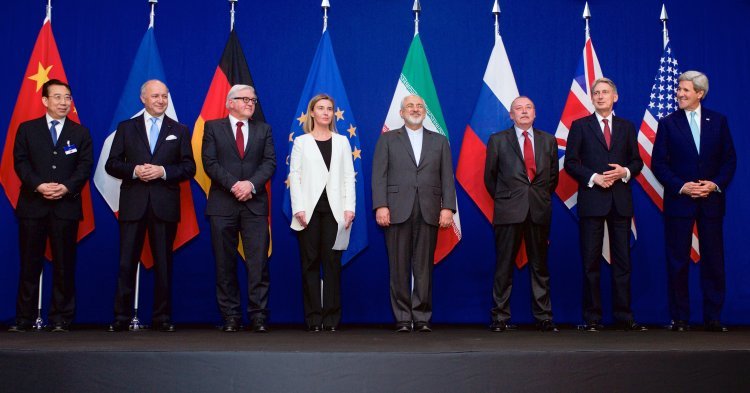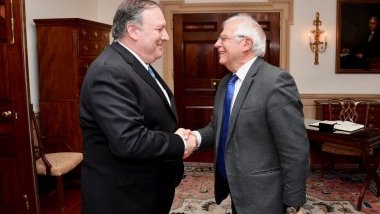The JCPOA has, to date, been the most effective means of constraining the nuclear activities of the Islamic Republic of Iran. The agreement was the hard-won result of a diplomatic undertaking which embroiled Iran, the United States, the European Union, the United Kingdom, France, Germany, Russia, and China in negotiations for nearly 10 years. Accepting the JCPOA framework gave Iran a respite from harsh economic sanctions imposed by Western powers, and, until May 8th, 2018, when the U.S. elected to unilaterally withdraw from the agreement, Iran had been fully compliant with its terms. Now that the U.S. has reimposed sanctions, staying in the agreement provides Iran with many costs and few benefits.
This puts all of the agreement’s signatories in a singularly unwelcome position. No alternative framework to the JCPOA has yet been offered, and now Iran has many incentives to break ranks, just as the U.S. did. By all accounts, Iran’s leadership has been quite careful with respect to how it has approached what remains of the deal. However, the JCPOA is almost certainly dead in spirit, if not yet in letter; and, given that the U.S. under the Trump administration appears to want nothing less than Iran’s complete capitulation as a regional actor in the Middle East, relations between Iran and the West are more fraught than ever.
European leaders and diplomats could have a signal role in reducing tensions and creating new opportunities for productive engagement. And to their credit, several already have; French President Emmanuel Macron’s spirited effort to arrange a meeting between Iranian Foreign Minister Javad Zarif and President Trump during this past year’s G7 summit is a good if vanishingly brief example. Yet the window for such initiatives is rapidly closing, and shuttle diplomacy can only accomplish so much. If the current crisis between Iran and the U.S. escalates even further, Europeans will have to make a hard choice between falling in line with American policies—whatever those might be—and forging their own path.
At this juncture, I would argue, it is the latter option which is the most desirable. Let us be frank: although Iran’s ruling stratum is hardly praiseworthy, they did not instigate this particular crisis. It was Donald Trump that destroyed the original credibility of the agreement by browbeating Iran and breaking the promises of his predecessor, President Barack Obama. For this reason, Europe should be very careful about imitating the current hardline stance of the U.S.—including by reimposing their own sanctions, as they indicated that they might do recently by invoking the nuclear agreement’s conflict resolution mechanism.
Europeans must seriously ask themselves to what extent they want to abet the Trump administration’s Iran policies. And, aside from the question of whether the incautious belligerence of the U.S. is really in their best interest, Europeans must consider what they really stand to gain in this instance from being perceived as its allies. The EU’s closeness to the U.S. stands to diminish its credibility at a time when it cannot afford to have a weak position in global affairs. The consequences of this are more substantial than they might seem at first: what Europe lacks in hard power, it has typically made up for in soft power. Thus, such a loss of credibility could result in a concomitant loss of influence, as well as of oft-desired strategic autonomy. Make no mistake: if its role as a geopolitical actor is further weakened, the EU might be forced to rely even more on the U.S. to resolve its essential security issues.
These potential consequences can already be glimpsed. A week before the E3 (the UK, France, and Germany) announced that they would be triggering the JCPOA dispute resolution mechanism, it came to light that President Trump had threatened to impose a 25% tariff on them if they did not. It is not entirely clear whether this blatant extortion helped to motivate the E3’s decision (European officials have stated that they were already considering this option in December). But this is a huge propaganda victory for Iran’s hardliners, and European leaders were already playing a risky game by activating the JCPOA mechanism. As tensions with the U.S. continue to deepen, it seems increasingly unlikely that the E3 will be seen in Iran as neutral mediators.
To solve the Iran crisis, Europe must act more independently of America. The issues with the U.S. approach, and with the Trump administration’s credibility, are simply too manifold for it to do otherwise. The U.S. foreign policy establishment has worryingly systemic problems, and President Trump’s “maximum pressure” campaign is deeply flawed. On top of this, Trump appears to have made his decision to kill Soleimani by distorting intelligence that he received from advisors.
Several administration officials also later tried to justify Trump’s decision as a way of supporting moderates within the Islamic Republic. But a significant part of Iran’s population is still polarized in favor of the existing regime, and the position of Iran’s would-be reformers may actually have been compromised by Trump’s actions. The President’s conviction that killing Soleimani would somehow destabilize Iran’s grip in the Middle East appears similarly misguided: according to experts, Soleimani’s successor, Esmail Qaani, is expected to oversee a “smooth transition” with little change of military strategy. With results like these, one might ask, who needs enemies?
To Washington, these things may not matter as much: a senior White House official recently summarized the Trump administration’s approach to foreign affairs with the phrase “We’re America, Bitch”. But if the Iran crisis is to be solved, Europe needs to stand for something different. The EU has options. It’s time that it used them.


Follow the comments: |
|
